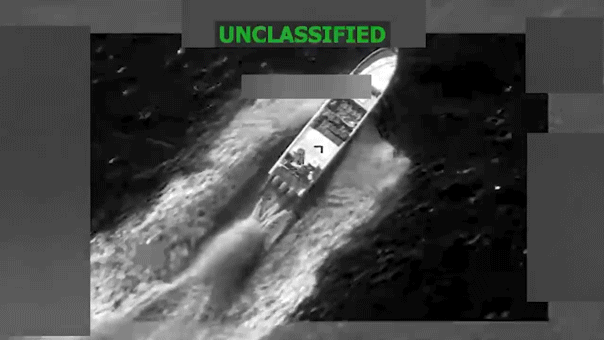WASHINGTON – The fighting in Libya has disrupted a sensitive U.S. government program to keep about 700 former nuclear and chemical weapons experts busy on civilian projects in the medical and petroleum industries there and prevent them from selling their dangerous knowledge in other countries, The Associated Press has learned.
After Libya agreed to give up its weapons of mass destruction in 2003, the U.S. has been spending about $2 million a year to steer weapons scientists and technicians into other fields, including medicine, green technology and the oil and gas industry, current and former U.S. officials told the AP. Efforts by the U.S. and by Britain, which also is involved in the program, have helped build a seawater desalination plant, a water quality lab and a telemedicine facility at the Tripoli Medical Center.
About 200 nuclear specialists and 500 others who worked with chemical weapons and missile technology could be driven to leave Libya by the fighting, including key figures in the nuclear weapons programs.
"If they're facing an uncertain future, they may just walk," said Sharon Squassoni, an arms control specialist at the Center for Strategic and International Studies in Washington.
Libya's cooperation under the program already had waned over the past year, starting around the time of complaints by Moammar Gadhafi's government that it hadn't received more financial and military aid from the West in exchange for abandoning its weapons of mass destruction.
The U.S. was trying to revive the weapons scientists program when protests against Gadhafi's government broke out in mid-February. "We are trying to re-engage," said Bonnie Jenkins, the State Department's coordinator for threat reduction programs. She said the U.S. still hopes to resume the efforts.
It was not immediately clear whether new U.S. financial sanctions imposed after the fighting started would interfere with payments to Libya under the program. But with President Barack Obama actively calling for Gadhafi to step down, it would be nearly impossible for the U.S. to restore ties with the Libyan government unless Gadhafi leaves office.
Citing the sensitivity of the program, the State Department and Energy Department declined to discuss it further. But experts told the AP that the Obama administration must be concerned about what happens to weapons scientists in Libya.
"I am confident that there are a number of Libyans who were involved in the program who had a great deal of knowledge, and it is knowledge that one has to be concerned about when it comes to starting up nuclear weapons programs," said former Ambassador Robert Joseph, who served as the chief negotiator in talks to end Libya's nuclear and other weapons. "They did have those individuals. And believe me, those experts could have been very useful to the Syrians or others who might be going down the nuclear path."
Most of Libya's strategic weapons programs were dismantled in 2004. Some nuclear enrichment equipment and long-range missiles were shipped to the U.S. The only unconventional weapons known to remain in Libya are 10-12 metric tons of mustard gas, a blistering agent, in storage at a site south of Tripoli, said Paul Walker of Global Green USA of Santa Monica, Calif., a charity whose parent organization was founded by Mikhail S. Gorbachev and supports eliminating such weapons.
Libya destroyed the shells that could have been used to spray the mustard agent over battlefields years ago. Walker said the chemical does not appear to pose much of a threat. "It's very difficult to deploy unless you have a sophisticated weapons system," he said.
Other analysts said that even if Gadhafi found a way to use his mustard agent, he would have little incentive to do so.
"If he uses weapons of mass destruction, that would put him in the WMD-Saddam Hussein category," said Richard Weiz, director of political and military analysis at the Hudson Institute think tank.
Squassoni, at the Center for Strategic and International Studies, has said previously that the scientists working on Libya's programs are relatively unsophisticated, compared with their counterparts in Russia, Iraq and North Korea.
"The Libyan situation bears watching, but it's not the biggest proliferation concern," she told the AP.
Libyan officials temporarily blocked the shipment of the country's last stocks of weapons-grade uranium out of the country in November and December 2009, according to U.S. diplomatic messages published by WikiLeaks. One of Gadhafi's sons, Saif, told U.S. diplomats that Libya was "fed up" with what he described as Washington's failure to compensate Libya for its cooperation and the U.S. refusal to provide Libya with advanced weapons.
It is possible that Libyan officials have hidden away nuclear materials or kept copies of nuclear weapon plans that they turned over to the U.S. after ending their program in 2003, said David Albright, president of the Institute for Science and International Security. He said the U.S. is fortunate it finished removing Libya's weapons-grade uranium and dismantling the country's arms programs before the current fighting.
U.S. and British efforts to find new jobs for Libyan weapons scientists have focused on Tajoura, east of Tripoli along the Mediterranean coast. It is the site of a 10-megawatt, Soviet-built research reactor and the center of Libya's nuclear research programs. Ambassador Gene Cretz described "shoddy security" at the Tajoura facility in a 2009 diplomatic message also published by WikiLeaks.
The Tajoura reactor was converted in 2006 from weapons-grade uranium to low-enriched uranium, which can't be used to build atomic weapons. It now produces radioisotopes for commercial applications.
The International Atomic Energy Agency's website says the Libyan reactor is operational, but a spokesman for the agency says it isn't clear whether Tajoura is still running. Research reactors are typically operated for a few hours a day and a few days a week, as needed, said Olli Heinonen, a former official with the International Atomic Energy Commission, now a fellow at Harvard.
Because the reactor is no longer fueled by weapons-grade uranium, it is considered less of a proliferation threat. About 400 anti-government protesters marched last week through Tajoura, chanting, "The people want to bring the regime down!" and waving the red, black and green flag of Libya's pre-Gadhafi monarchy, the banner of the uprising. Witnesses said pro-Gadhafi forces quickly moved in, firing volleys of tear gas before opening fire with live ammunition.









































